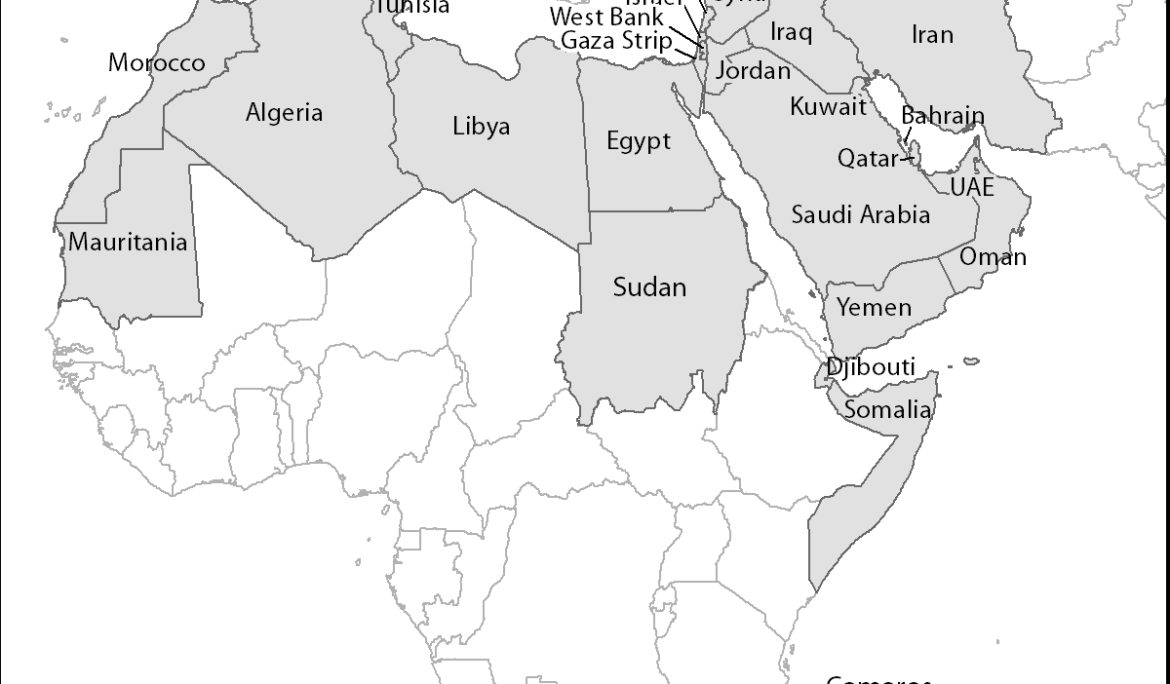Regional security and the Chemical Weapons Convention: Insights for the Middle East (Part 2)
In November 2019, the first annual meeting exploring the possibility of creating a zone exempt of non-conventional weaponry in the Middle East took place. The COVID-19 pandemic forced the postponement of the second meeting in 2020. Conditions permitting, the session is now scheduled for this autumn. Meanwhile, the conference has organised two informal workshops, the second one of which was held virtually on 23-25 February. Entitled ‘Good Practices and Lessons Learned with respect to the implementation of Treaties establishing Nuclear-Weapon-Free Zones’, the workshop’s third session looked at the core obligations governing chemical and biological weapons (CBW). It aimed to glean …
Regional security and the Chemical Weapons Convention: Insights for the Middle East (Part 1)
In November 2019, the first annual meeting exploring the possibility of creating a zone exempt of non-conventional weaponry in the Middle East took place. The COVID-19 pandemic forced the postponement of the second meeting in 2020. Conditions permitting, the session is now scheduled for this autumn. Meanwhile, the conference has organised two informal workshops, the second one of which was held virtually on 23-25 February. Entitled ‘Good Practices and Lessons Learned with respect to the implementation of Treaties establishing Nuclear-Weapon-Free Zones’, the workshop’s third session looked at the core obligations governing chemical and biological weapons (CBW). It aimed to glean …
Palestine: From a ‘will-be’ party to the CWC to a ‘would-have-been’?
Something really remarkable happened in the first two weeks of 2018. On 2 January, quite out of the blue came the notification by UN Secretary-General António Guterres that the State of Palestine had deposited its instrument of accession to the Chemical Weapons Convention (CWC). It was to become the 193rd state party on 28 January, thirty days after having submitted the document (29 December). Indeed, ‘was’. Guterres formally informed UN members on 11 January that Palestine had withdrawn its instrument of accession three days earlier. States withdrawing from a disarmament or arms control treaty is extremely rare. But it does …
Palestine’s withdrawal of its instrument of accession to the CWC (Part 2)
In my blog posting of 16 January entitled ‘Palestine: From a “will-be” party to the CWC to a “would-have-been”?’, I described how Palestine submitted its instrument of accession to the Chemical Weapons Convention (CWC) with the UN Secretary-General on 29 December, only to withdraw it on 8 January. Since having achieved the status of ‘UN non-member observer state’ in 2012, Palestine has joined over 50 international agreements, including the Biological and Toxin Weapons Convention, to which it became formally a party on 16 January. The CWC is the only treaty on which it reversed its position. Retracting an instrument of …
Engaging Israel on CWC Ratification – Part 1: Outsider Perspectives
The Israeli Disarmament Movement together with the Chemical Weapons Convention Coalition (CWCC) and Green Cross convened two days of roundtable discussions on Chemical Weapons, Israel and the Middle East in Tel Aviv. The third day, 12 November, a briefing was held in the Knesset. In a region where (existential) security and the nuclear weapons stand central to any debate on arms control strategies, the exclusive focus on chemical weapons (CW) was a rare occurrence. The meeting goals were twofold: promote ratification of the Chemical Weapons Convention (CWC) by Israel and to have Israel take a more positive stance in the …
Wow! Did the OPCW really say that?
It is true that pressure for Israel to join the Chemical Weapons Convention (CWC) is steadily mounting. Presently 190 states are party to the treaty. Besides Israel, only Angola, Egypt, Myanmar, North Korea and South Sudan have not ratified or acceded to it. As participants in the 2014 Jonathan Tucker Conference on Chemical and Biological Arms Control heard yesterday from Dr Peter Sawzcak, Head of Government Relations and Political Affairs Branch of the Organisation for the Prohibition of Chemical Weapons (OPCW), Myanmar is expected to ratify the CWC in its forthcoming parliamentary session in January. The Council of Ministers of …
Becoming the largest weapon-control treaty
The Organisation for the Prohibition of Chemical Weapons (OPCW) has just announced the accession of Angola to the Chemical Weapons Convention (CWC). The country deposited its instrument of accession with the UN Secretary-General on 16 September, which means that it will become a party to the CWC 30 days later, that is, 16 October. Angola will thus be the 192nd state to join the OPCW. No other treaty limiting possession or use of a particular type of weaponry can boast that many parties. The Non-Proliferation Treaty (NPT) has 191; the Biological and Toxin Weapons Convention (BTWC) 173. Middle East – …
Happiness is the road
Now one month ago, my contract with the UN Office for Disarmament Affairs (UNODA) ended. It was an unexpected 6-month stint to assist the Implementation Support Unit (ISU) of the Biological and Toxin Weapons Convention (BTWC) with organising a series of four regional workshops in preparation of the 8th Review Conference of the BTWC next month. These workshops were sponsored by the European Union (EU) under Council Decision CFSP/2016/51 of 18 January 2016 (Project 4). They targeted Eastern Europe and Central Asia (Astana, Kazakhstan on 15–16 June), Latin America (Brasilia, Brazil on 22–23 August), South and South-East Asia (New Delhi, …
Disarmament on top of the world
Given that the Chemical Weapons Convention (CWC) has already attracted 190 states parties, the Biological and Toxin Weapons Convention (BTWC) has become something of a laggard. Not just in terms of numbers, but also regarding the time it has taken to secure the 170 ratifications or accessions. It entered into force in 1975, or 22 years before the CWC became effective. Over the past decade and a half parties to the BTWC have stepped up their efforts to secure more ratifications and accessions. Unlike the CWC, the BTWC does not have an international implementation organisation that can take charge of …

